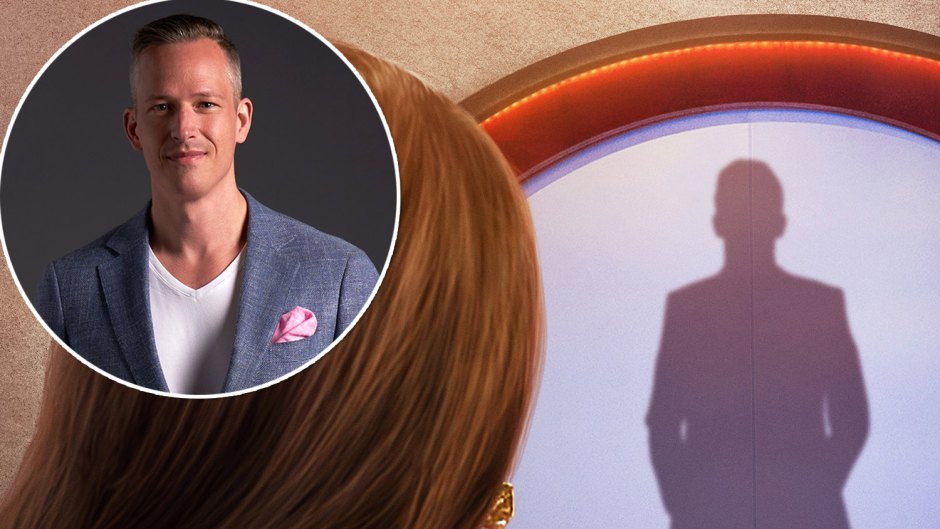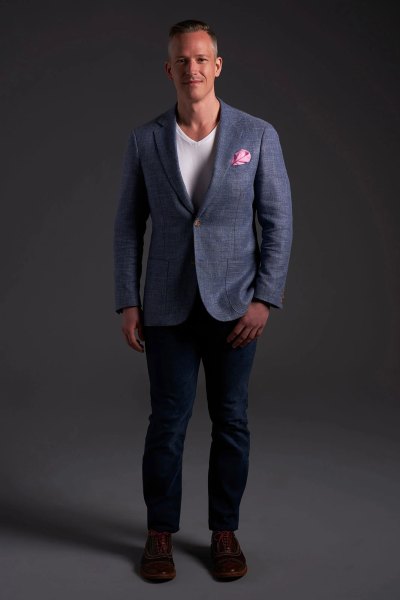
Netflix; Inset: Ser Baffo/Netflix
‘Love Is Blind’ Faces Lawsuit From Former Contestant Alleging Sleep Deprivation and Low Pay
The producers of Netflix’s hit romance series Love Is Blind are facing a class-action lawsuit filed by season 2 contestant Jeremy Hartwell. In the complaint, the reality TV alum issued multiple allegations against the show, “forcing contestants to work drunk, starved, sleep-deprived and underpaid,” according to a July 13, 2022, press release issued by Payton Employment Law, PC, viewed by In Touch.
In response to the lawsuit, a rep for Kinetic Content tells In Touch, “Mr. Hartwell’s involvement in Season 2 of Love is Blind lasted less than one week. Unfortunately, for Mr. Hartwell, his journey ended early after he failed to develop a significant connection with any other participant. While we will not speculate as to his motives for filing the lawsuit, there is absolutely no merit to Mr. Hartwell’s allegations, and we will vigorously defend against his claims.”
Netflix did not immediately respond to In Touch‘s request for comment.
Keep reading to find out everything we know about the Love Is Blind lawsuit.
What Are the Accusations Against Love Is Blind?
On June 29, 2022, Cartwell filed a proposed class-action lawsuit on behalf of all contestants on Love Is Blind with the Los Angeles Superior Court.
“They intentionally underpaid the cast members, deprived them of food, water and sleep, plied them with booze and cut off their access to personal contacts and most of the outside world,” Hartwell’s attorney, Chantal Payton, said in a statement within the press release. “This made cast members hungry for social connections and altered their emotions and decision-making.”
Payton also claimed that participants’ contracts “required contestants to agree that if they left the show before filming was done, they would be penalized by being required to pay $50,000 in ‘liquidated damages.’”

“With that being 50 times what some of the cast members would earn during the entire time that they worked, this certainly had the potential to instill fear in the cast and enable production to exert even further control,” Hartwell’s attorney added.
The contestant also alleged that the “only drinks that defendants regularly provided to the cast were alcoholic beverages, soft drinks, energy drinks and mixers. Hydrating drinks such as water were strictly limited to the cast during the day.”
“It was like an out-of-body experience for him, and he realized that he was open to emotional manipulation,” managing partner of Payton Employment Law, Laurel N. Holmes, claimed. “He left the show feeling like a zombie, and he was told he looked that way too once he got back to Chicago.”
Complaints Against Love Is Blind Workplace Conditions
According to the lawsuit, contestants who worked for the production in Los Angeles County were paid a flat rate of $1,000 per week, while participants worked 20 hours per day and seven days per week. As a result, they were paid $7.14 per hour, whereas the L.A. minimum wage is $15 per hour, the lawsuit alleges.
The filing also claims that the cast members were not allowed to take all of their meal and rest breaks, but producers also allegedly confiscated their personal items, such as ID cards, credit cards, wallets and cell phones.
Additionally, the lawsuit alleges that producers withheld the key to the hotel rooms that contestants were required to stay in and accused the producers of informing the hotel staff not to provide any food to the reality TV stars if they requested it.
“The exploitative working conditions served to control the participants’ conduct and elicited irrational behavior for entertainment value in the final project,” Holmes added.
The Love Is Blind Lawsuit Includes Allegations Against Other Reality TV Shows
“Love Is Blind is not the only reality show that exploits its cast members by misclassifying them as independent contractors,” Payton alleged. “Reality show production and casting companies exert a lot more control over the contestants than the law allows for a worker to truly be considered an independent contractor, especially in shows where cast members are supposedly searching for love.”
In her statement, Payton also called out other romance series, including Married at First Sight and The Ultimatum: Marry or Move On — (which was introduced by the Love Is Blind creators) — and claimed, “The use of substantial amounts of alcohol is apparent and excessive.”
“You see cast members constantly have an alcoholic beverage in their hands or within arm’s reach, and they are shown drinking a lot more than eating, and there are instances of individuals being visibly drunk,” she added.
Have a tip? Send it to us! Email In Touch at contact@intouchweekly.com.







































